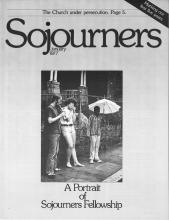Repression of progressive elements of the church has escalated dramatically in certain Latin American countries during the past months.
Roman Catholic Bishop Leonidas Proano Villalba of Riobamba, Ecuador, was arrested with 48 other clergy last August in the Ecuadorian government’s raid on a pastoral conference attended by Latin American and U.S. bishops. Bishop Proano publicly interpreted the unprecedented raid as an extension of police violence issuing from Bolivia.
While the other bishops, including four from the U.S., were held incommunicado for more than 24 hours at a military barracks, Proano was interrogated. Archbishop Robert Sanchez of Santa Fe, N.M., one of the four U.S. bishops detained, believed the arrests were an attempt to discredit Bishop Proano.
After being returned to Riobamba, Proano told a cheering crowd of poor farmers and workers: “In those papers (confiscated by the police) the government will find an analysis of reality and of the pastoral experience of bishops. But the truly subversive document, which the police did not take, is the gospels.”
Proano’s charge, that his arrest was part of a strategy developed in Bolivia by General Hugo Banzer, was leveled soon after his release from jail, and widely reported in the Ecuadorian press.
The “Banzer Plan” was first reported last year by Latinamerica Press of Lima, Peru, which received the information from church sources who claimed that a Bolivian police official supplied it to them. The unnamed official spelled out 15 directives to be followed by the Bolivian police, including:
Read the Full Article

